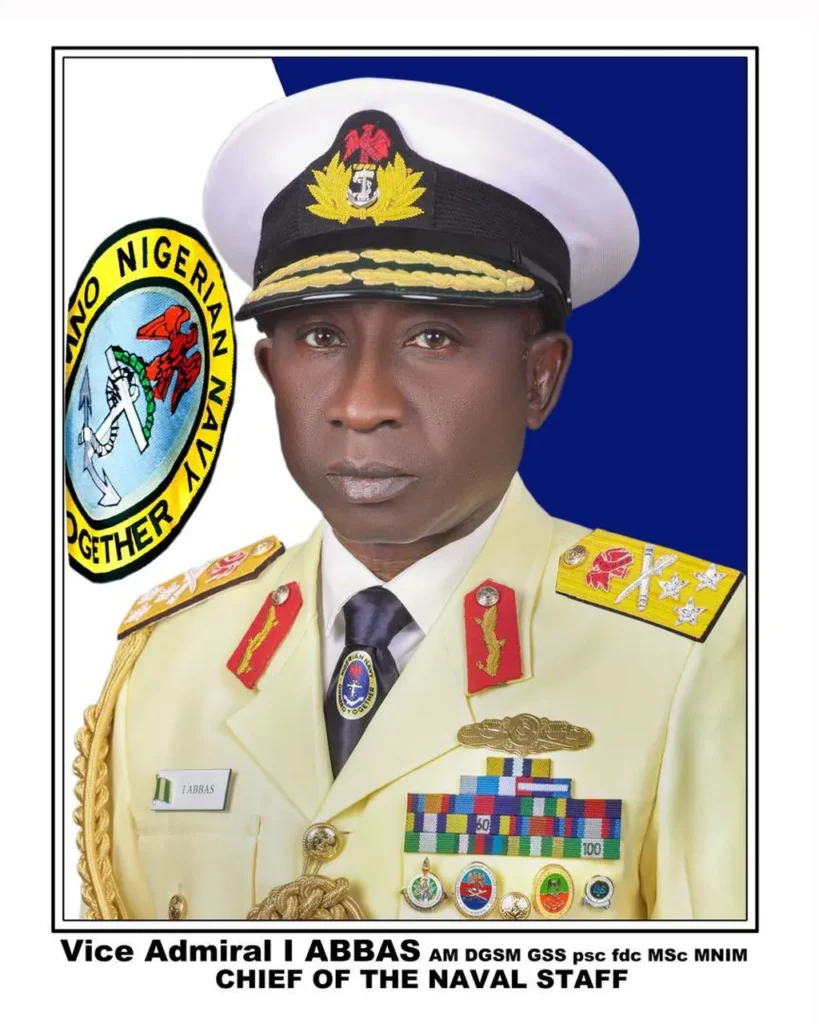Vice Admiral Idi Abass, the newly appointed Chief of Naval Staff (CNS), has set an ambitious agenda for the Nigerian Navy, pledging to bolster maritime security, enhance operational capabilities, and uphold the service’s core values of integrity, professionalism, and teamwork. Speaking during a formal handover ceremony at the Naval Headquarters in Abuja, where he became the 23rd indigenous head of the Nigerian Navy, Abass expressed deep gratitude to President Bola Ahmed Tinubu for the trust placed in him. He vowed to execute his duties with unwavering dedication, fairness, and loyalty to the nation.
“It is with profound honour and humility that I accept this responsibility. I am fully aware of the immense task ahead and I pledge to uphold the proud traditions of excellence and service that define our Navy,” Abass stated, setting a tone of commitment and resolve.
Abass paid tribute to his predecessors for laying a solid foundation for the service, particularly praising his immediate predecessor, Vice Admiral Emmanuel Ikechukwu Ogalla, whom he described as a visionary leader whose tenure significantly strengthened the Navy’s operational framework.
Addressing the persistent threats in Nigeria’s maritime environment, Abass acknowledged challenges such as crude oil theft, sea robbery, illegal bunkering, unregulated fishing, and drug trafficking. These crimes, he noted, pose significant threats to national security and economic stability. To counter these issues, he outlined a strategic plan focused on fleet renewal, technological advancements, intensive training, and improved welfare for personnel.
“The Nigerian Navy under my watch will be professional and accountable. We are fully committed to safeguarding our waters for national prosperity and ensuring the safety of legitimate commerce,” Abass asserted. He emphasized the importance of collaboration with sister services, other security agencies, and international partners to effectively tackle maritime and coastal threats.
Abass also stressed that the welfare of naval personnel would remain a top priority. He urged all naval personnel to rededicate themselves to duty, emphasizing that with unity, discipline, and continued support from the Commander-in-Chief, the Nigerian Navy would “sail toward a more glorious future.”
This strategic vision not only aims to enhance the operational readiness of the Nigerian Navy but also underscores the importance of international cooperation in addressing maritime security challenges. By leveraging advanced technology and fostering stronger partnerships, Abass’s leadership could potentially set a new standard for maritime security in the region. His focus on personnel welfare and professional development is likely to boost morale and efficiency within the ranks, ensuring that the Nigerian Navy remains a formidable force in safeguarding the nation’s maritime interests.

